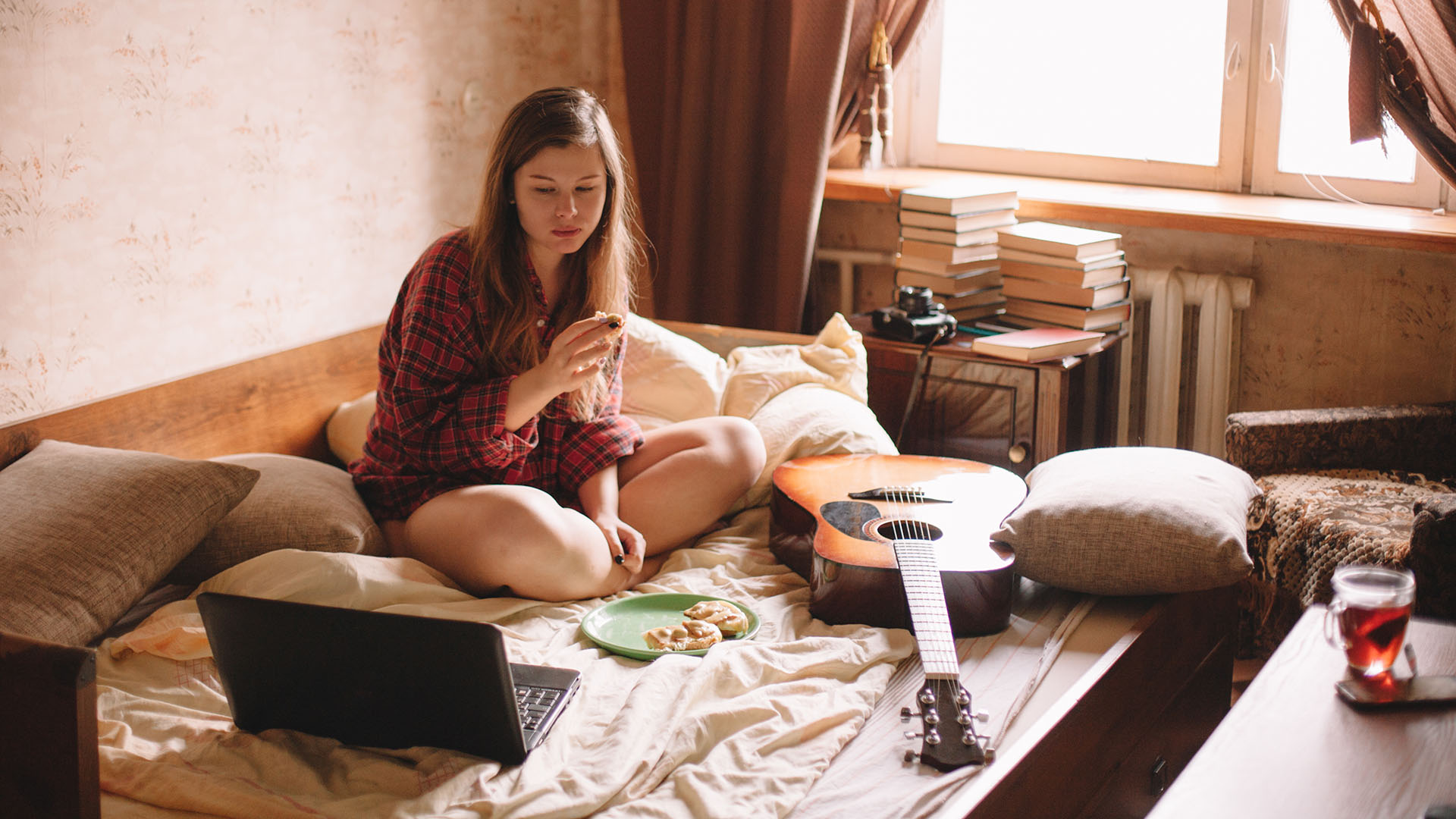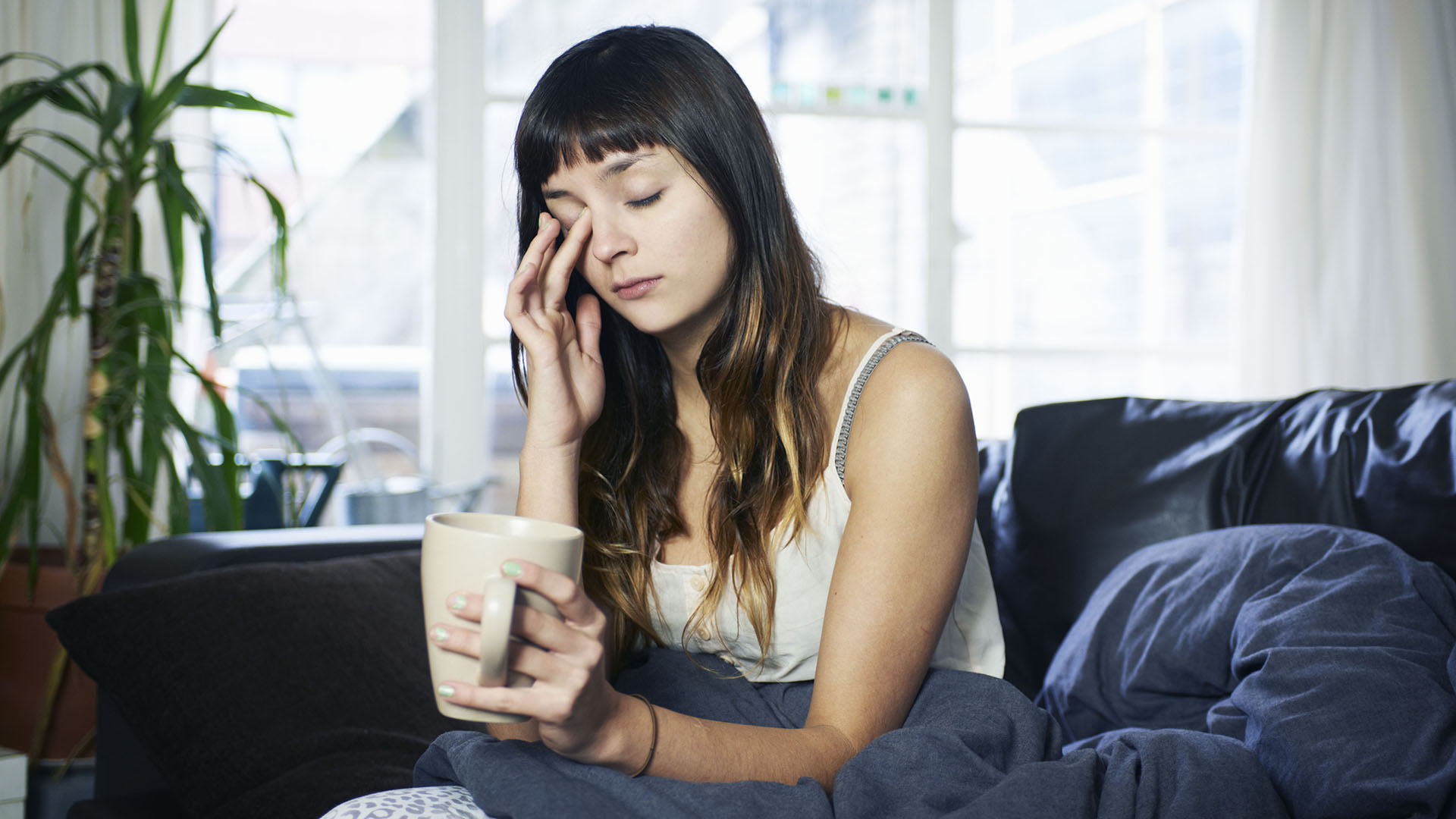Bed rotting: viral TikTok 'self-care' trend really is as bad as it sounds, say the experts
Lying in bed all day might feel tempting, but it'll ruin your sleep

'Bed rotting' is just lying in bed for extended periods of time, not to sleep, but to eat, watch TV, read, generally chill out. The practice is going viral on TikTok at the moment, but for every video claiming a day of bed rot is unproblematic self-care, there's one saying it's a terrible idea.
Off-putting terminology aside, we've all had days where getting up, washed, dressed and out and about is wildly unappealing compared with nesting in the cosy cocoon of our bedclothes. But is giving in to those urges really such a terrible idea? Unfortunately, the consensus is a resounding 'yes' – and certainly from a sleep point of view. As part of its Beauty Sleep report, LOOKFANTASTIC spoke to three experts, all of whom agreed that bed rotting will do you more harm than good. Here's why
1. It promotes the wrong associations
The main issue is to do with how you and your body come to view your bed. Keeping your bed as a place just for sleep is a key component of sleep hygiene.
"Rather than promoting a sleep-conducive environment, bed rotting can lead to associations between the bed and wakefulness. Bed should be a place of rest and sleep, rather than a place of activities,” says Susan Miller, a certified sleep expert from Sleepmattress HQ.
"Spending too much time lying in bed awake can reinforce the association between bed and wakefulness, making it harder to fall asleep in bed when we actually want to," agrees Maryanne Taylor, a sleep consultant from The Sleep Works.

2. Bed rotting disrupts your sleep schedule
Sleep coaches advise maintaining regular bedtimes and wakeup times every day (even weekends). Having a regular schedule in order should help you fall asleep faster and help you feel more alert during the mornings. One of the knock-on effects of bed rotting is that the boundaries between sleep time and wake time become blurred, and your sleep schedule goes out of the window.
"Spending excessive time in bed during the day might make it harder to fall asleep at night, leading to irregular sleep patterns and potential sleep disturbances," says Susan.
Sign up to get the BEST of Tom's Guide direct to your inbox.
Get instant access to breaking news, the hottest reviews, great deals and helpful tips.
There's also the issue of exactly what you're doing in bed. If you're using devices to engage with social media or watch videos, that screen time can disrupt the body's wind-down process. And even more so if those activities are mentally stimulating.

3. It isn't even an effective way to recharge
The purpose of this practice is to give the body a chance to recharge, but the experts agree that it bed rotting isn't even the best way to do that.
"As a sleep expert, my concern is that over-resting (which this bed rotting 'strategy' could tip into if abused) will affect quality of sleep," comments sleep expert and neurophysiologist Dr Nerina Ramlakhan ."Even if the 'bed rotter' isn't sleeping, the lack of movement, poor nutrition, sub optimal breathing and lack of daily exposure to healthy levels of daylight and Vitamin D could lead to poor sleep quality along with other medical problems such as chronic exhaustion and fatigue.”
Maryanne also warns that lying in bed for long periods of time appears to be linked to poorer emotional wellbeing.
That said, Nerina is keen not to dismiss the idea completely – and emphasises that the impetus behind the trend (prioritising rest time) is a positive one. "There is a balance to be struck. Gen Zs… will have something to teach us about being less leaned in, and frenetic in our bid to keep pace with perceived demands. We have a lot to learn about slowing down and resting."

Ruth is currently Homes Editor on Tom's Guide's sister site TechRadar, where she reviews and writes about everything from air fryers to vacuum cleaners to coffee machines, as well as the latest smart home gadgets. Prior to making the shift to Homes, Ruth was Tom's Guide's Sleep Editor. A certified Sleep Science Coach, she has tested more mattresses than her small flat can handle and will talk at length about them to anyone who shows even a passing interest.
